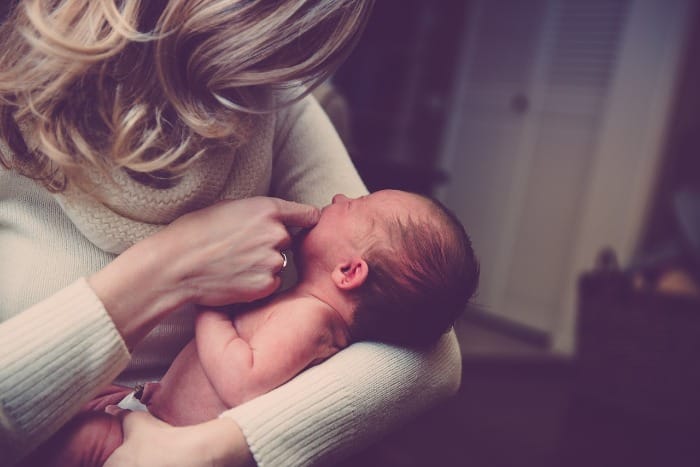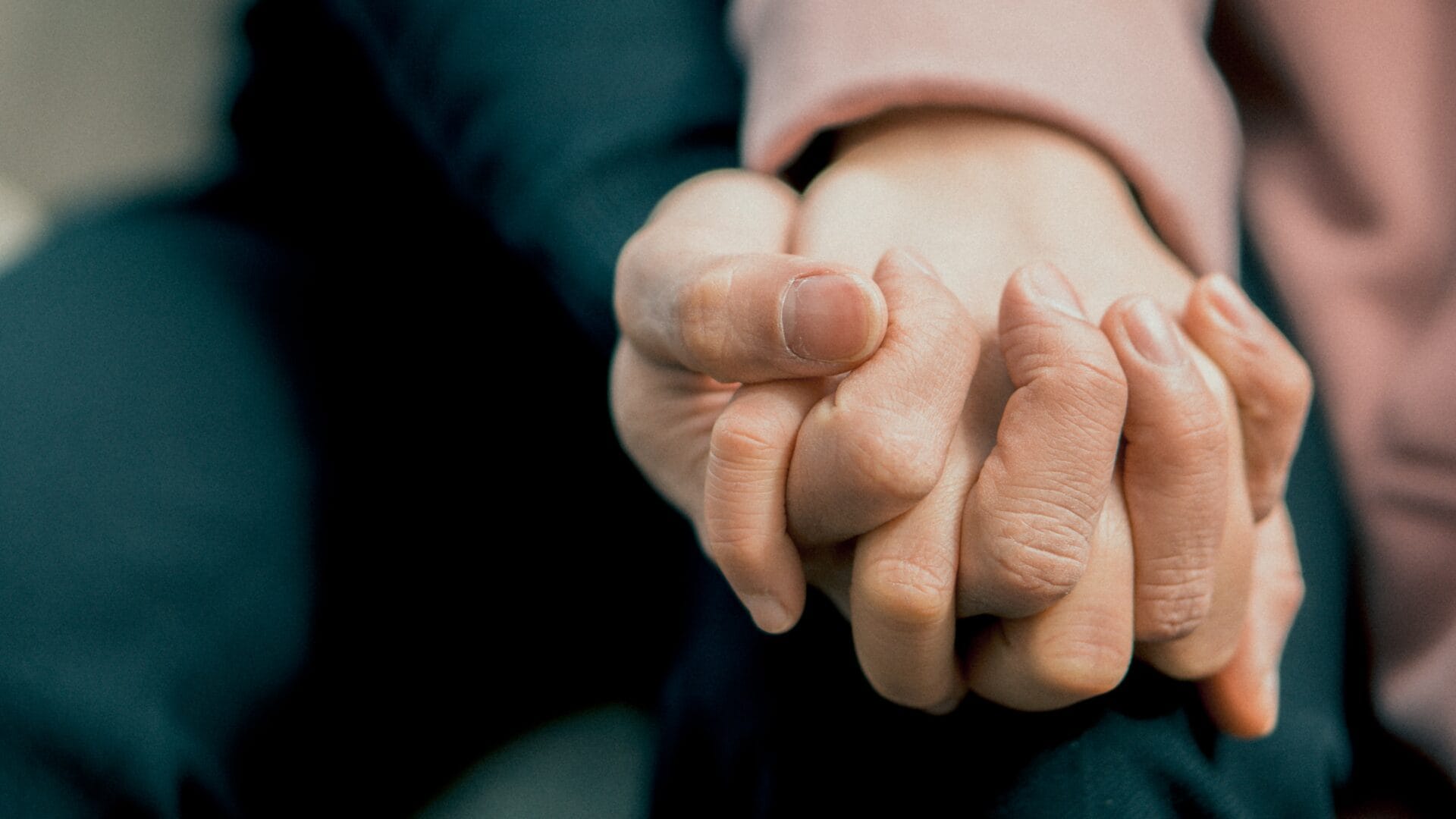Drinking alcohol will put your pregnancy and your baby at risk.
If you are currently pregnant, or even planning on getting pregnant soon, then you should avoid drinking alcohol or using any other substances for the foreseeable future.
By doing so, you keep any risk to your baby to a minimum.
Drinking alcohol on a regular basis can cause a whole host of both long-term and short-term effects on your body.
These are well known and understood, and if you are pregnant then you will also be doing long-term harm to your baby.
The more you drink, the more harm you are doing to your baby and to your own body. [1]
Every situation is different and not everyone who finds themselves pregnant plans to be.
This is why it is sadly not uncommon for newly pregnant women to turn to alcohol once they realise they are pregnant, as it comes as a shock.
Likewise, as your pregnancy develops, your body is likely to change, as are your hormones and mood.
You might find yourself feeling more depressed or anxious than usual, which for many can trigger alcohol use.
However, once you are pregnant you should avoid drinking any alcohol altogether, as it causes significant harm to your developing baby as well as posing a risk to your own health during a already turbulent time.

When you drink alcohol when pregnant, the alcohol you consume enters your blood, passes through the placenta in your womb and enters the developing fetus.
As such, your baby will be massively affected by alcohol, having a serious impact on your baby’s development and future health.
This is because your baby will not have a fully developed liver, which is the organ responsible for processing alcohol.
Without it, your body cannot process the alcohol it is being exposed to.
Likewise, drinking alcohol whilst pregnant can also increase your risk of experiencing a miscarriage, premature birth [2] or potentially having a baby that is severely underweight at birth.
Additionally, drinking alcohol whilst pregnant can also put your baby at risk of developing a life-long condition called Fetal Alcohol Spectrum Disorder, also known as FASD. [3]
If your baby suffers from FASD due to your alcohol abuse, then they will most likely suffer from a range of issues, including:
They will also be more at risk of developing emotional issues, as well as struggling to develop social skills.
They might find themselves hyperactive, and you might notice that they often tend to act on an impulse on a regular basis.
They could also be at risk of developing communication issues as they get older, including issues with their speech.
As with most substance use disorders, the more you abuse a substance, then the worse the effects are.
The same can be said for the baby – the more you abuse substances, then the worse the effects on the baby.

If you are used to drinking every week, or potentially every day, then you might be worried about the prospect of going nine whole months without drinking a drop of alcohol.
However, avoiding alcohol might not be as hard as you think.
There are a range of different tips and tricks on how to avoid alcohol if you are pregnant.
For example, there are a range of different non-alcoholic drinks on the market and most bars and restaurants in the UK offer a wide selection of alternatives.
You could also try to avoid exposing yourself to situations where you would be offered alcohol and could try to find a sober buddy to go out with.
Tommys, [4] the pregnancy and baby charity, discuss a range of different tips and advice on how to avoid drinking alcohol whilst pregnant, providing an effective guideline for staying social and sober during pregnancy.

If you are pregnant and worrying about stopping drinking, or have been struggling to stop, then you should talk to a professional to get help for your alcohol addiction.
You can start by reaching out to your local GP for advice, or simply talking to a pharmacist or alternatively your midwife.
There is also a range of other help and support options available to you, including some free helplines listed below:
If you require an alcohol detox, you can consider paying for this out-of-pocket (i.e. if you can’t get funding from your local authority) at a private alcohol detox clinic.
You might also consider a home alcohol detox.

If you are planning on getting pregnant any time soon, then you should avoid drinking alcohol as much as possible. [8]
In fact, if you are actively trying to get pregnant, then you should avoid drinking alcohol whilst you are trying, and definitely when you are lucky enough to fall pregnant.
Complete abstinence is the best way to completely avoid any of the harmfull effects alcohol could have on your baby.
You should also try to avoid drinking caffeine during this time, as well as certain foods such as shellfish and runny eggs.
If you are ever unsure about what you can and cannot eat or drink when pregnant, then you should always check with your doctor or your midwife.

If you want to breastfeed once your baby has been born, then you should try to avoid drinking alcohol whilst you breastfeed.
Unfortunately, consuming alcohol whilst you breastfeed means that your baby might be exposed to alcohol through your breast milk. [9]
If you do choose to drink alcohol whilst you are breastfeeding, then you should try your best to limit the amount of alcohol you are consuming, and certainly drink no more than 14 units per week, and you should spread this out across 7 nights throughout the week.

The key thing to remember is that drinking alcohol whilst you are pregnant can do your baby harm and should be avoided at all costs.
You should also avoid drinking alcohol if you are trying to get pregnant, or if you are breastfeeding once you have your baby.
Whilst the risk of harm to your baby is low if you consume very small amounts of alcohol before realising you are pregnant, you could still be putting your baby at risk by doing so.
So, if there’s even the smallest chance that you are pregnant, then you should take a pregnancy test and avoid drinking alcohol until you know if you are or are not pregnant for certain.
It is always recommended to take multiple pregnancy tests for the best results.

If your partner is pregnant and is therefore unable to drink alcohol during their pregnancy or whilst breastfeeding, then you might look for different ways to support them during this time.
There are a number of things that you can do to support your partner whilst they avoid drinking, including also avoiding alcohol, encouraging them to take part in activities that do not involve drinking alcohol, or alternatively trying non-alcoholic drinks with them.
It is important to understand that if your partner is pregnant and therefore unable to drink alcohol, drinking alcohol in front of them can make it extremely difficult for them to hold themselves back, especially if they suffer from an alcohol addiction or alcohol dependence.
So, try to think of different ways that you can support your partner in their abstinence from alcohol, and be as supportive as you can through this tricky time.

If you are currently pregnant and worried about your alcohol addiction, then you should speak to your local GP or midwife as soon as possible about your concerns.
It is always best to be open and honest with them, so that they can offer you the right help that will not only help you but will also help your baby.
Likewise, if you have just had your baby and are currently struggling to avoid drinking whilst breastfeeding, then you should speak to a professional.
Lots of new mums suffer from postnatal depression and so turn to alcohol as a crutch – however, by doing so you could be putting your baby’s health at risk.
There are a range of different alcohol addiction treatment options available to you that Rehab 4 Addiction can help you find, including inpatient alcohol rehab, outpatient alcohol rehab, addiction therapy and even home alcohol detox services if you want to recover from your alcohol addiction in the comfort of your own home either whilst pregnant or with a newborn at home.
All of the addiction support services and drug and alcohol rehab facilities we work with are vetted by the Care Quality Commission (England and Wales) or the Care Inspectorate (Scotland).
Start your recovery journey today by calling our friendly and free helpline on 0800 140 4690
[1] https://www.nhs.uk/pregnancy/keeping-well/drinking-alcohol-while-pregnant/
[2] https://pmc.ncbi.nlm.nih.gov/articles/PMC6677630/
[3] https://www.nhs.uk/conditions/fetal-alcohol-spectrum-disorder/
[5] https://www.alcoholics-anonymous.org.uk/
[6] https://www.drinkaware.co.uk/
[7] https://www.wearewithyou.org.uk/